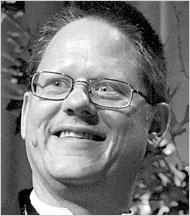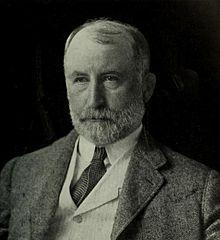William Tyndale Quotes
Christ is with us until the world's end. Let his little flock be bold therefore.
William Tyndale (1848). “Doctrinal Treatises and Introductions to Different Portions of the Holy Scriptures”, p.135
William Tyndale (1848). “Doctrinal treatises and introductions to different portions of the Holy Scriptures”, p.296
William Tyndale (1848). “Doctrinal Treatises and Introductions to Different Portions of the Holy Scriptures”, p.20
William Tyndale, John Frith (1831). “The Works of the English Reformers: William Tyndale and John Frith”, p.317
"Doctrinal Treatises and Introductions to Different Portions of the Holy Scriptures".
William Tyndale, John Frith, Thomas Russell (1831). “The Works of the English Reformers: The works of Tyndale, (continued:) An answer to Sir Thomas More's Dialogue ; An exposition upon the 5th, 6th, and 7th chapters of Matthew ; An exposition upon the 1st epistle of St. John ; A pathway into the Holy Scripture ; The sacrament of baptism, and the sacrament of the body and blood of our saviour Jesus Christ”, p.490
William Tyndale (1848). “Doctrinal treatises and introductions to different portions of the Holy Scriptures”, p.135
"Foxe's Book of Martyrs". Book by John Foxe, March 20, 1563.
All that I do and suffer is but the way to the reward, and not the deserving thereof.
William Tyndale, John Frith (1831). “The works of Tyndale”, p.43
It is impossible to preach Christ, except thou preach against antichrist.
William Tyndale, John Frith (1831). “The Works of the English Reformers: William Tyndale and John Frith”, p.220
Let every man of whatsoever craft or occupation he be of... serve his brethren.
William Tyndale (1831). “The Works of the English Reformers: William Tyndale and John Frith”, p.138
William Tyndale (1848). “Doctrinal Treatises and Introductions to Different Portions of the Holy Scriptures”, p.254
William Tyndale, John Frith, Thomas Russell (1831). “The Works of the English Reformers: The works of Tyndale, (continued:) An answer to Sir Thomas More's Dialogue ; An exposition upon the 5th, 6th, and 7th chapters of Matthew ; An exposition upon the 1st epistle of St. John ; A pathway into the Holy Scripture ; The sacrament of baptism, and the sacrament of the body and blood of our saviour Jesus Christ”, p.517
William Tyndale, John Frith, Thomas Russell (1831). “The Works of the English Reformers: The works of Tyndale, (continued:) An answer to Sir Thomas More's Dialogue ; An exposition upon the 5th, 6th, and 7th chapters of Matthew ; An exposition upon the 1st epistle of St. John ; A pathway into the Holy Scripture ; The sacrament of baptism, and the sacrament of the body and blood of our saviour Jesus Christ”, p.204
William Tyndale (1850). “An Answer to Sir Thomas More's Dialogue: The Supper of the Lord After the True Meaning of John VI. and 1 Cor. XI. And Wm. Tracy's Testament Expounded”, p.191







